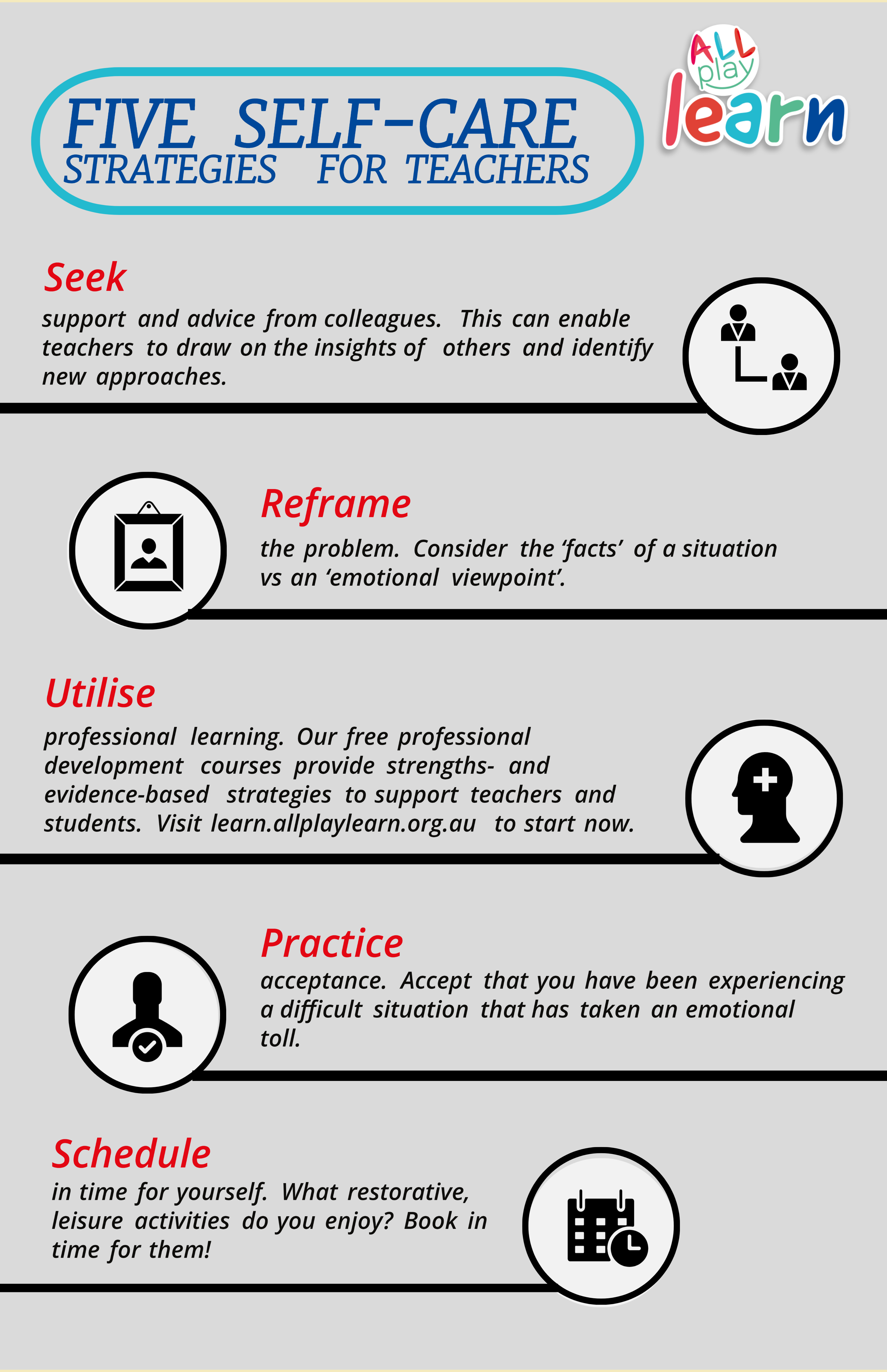
Self-care for
Educators and
Teachers
On this page:
- Caring for your emotional, physical and mental health
- Tips from the Australian Psychological Society
- AllPlay Learn's simple self-care strategies
Practicing self-care is essential during this time—not just for children, but also for teachers. Feelings of unease and worry are expected during a pandemic, but it’s important that we learn how to manage stress before it becomes more severe.

Caring for your emotional, physical and mental health
Engaging in self-care practices means that you regularly practise activities in all aspects of your life that lower your stress and help you manage your emotional, physical and mental health. Some ideas to consider practising are:
- staying physically active throughout the day (e.g. go for a short walk at lunchtime, or exercise before or after work)
- taking breaks
- setting up a peer-support group
- finding a mentor or more experienced colleague to discuss work with
- engaging in professional training
- asking for help when you need it
- celebrating small and big successes and milestones (yours, and your students’)
- meditation, mindfulness and relaxation techniques
- keeping a non-work hobby
- making time to be with friends and family
For more resources on mental health in the workplace, visit https://www.headsup.org.au/

Tips from the Australian Psychological Society
The Australian Psychological Society provides tips for coping with coronavirus anxiety and maintaining mental health during social isolation.
View the Australian Psychological society’s tips.

AllPlay Learn's simple self-care strategies
AllPlay Learn has also created infographics outlining simple self-care strategies for teachers.
Seek support and advice from colleagues
Reframe the problem
Utilise professional learning
Practice acceptance
Schedule in time for yourself
This can enable teachers to draw on the insights of others and identify new approaches.
Consider the "facts" of a situation vs an "emotional viewpoint".
Our free professional development courses provide strengths-and evidence-based strategies to support teachers and students.
Accept that you have been experiencing a difficult situation that has taken an emotional toll.
What restorative leisure activities do you enjoy? Book in time for them!

